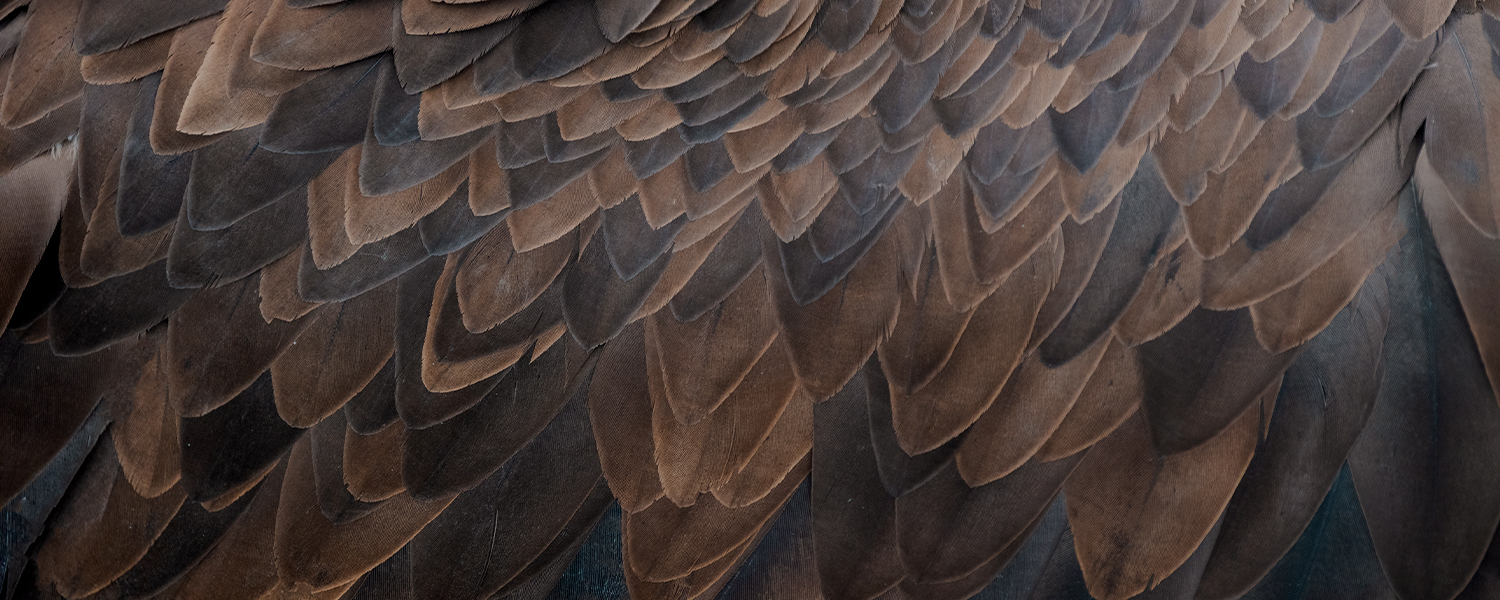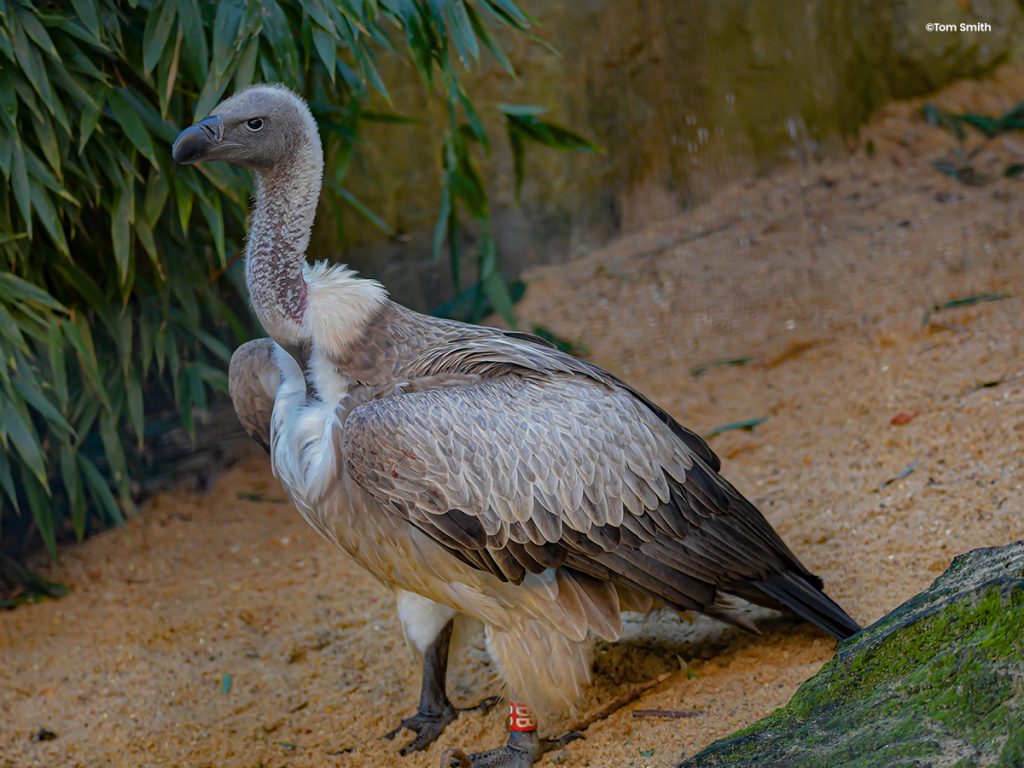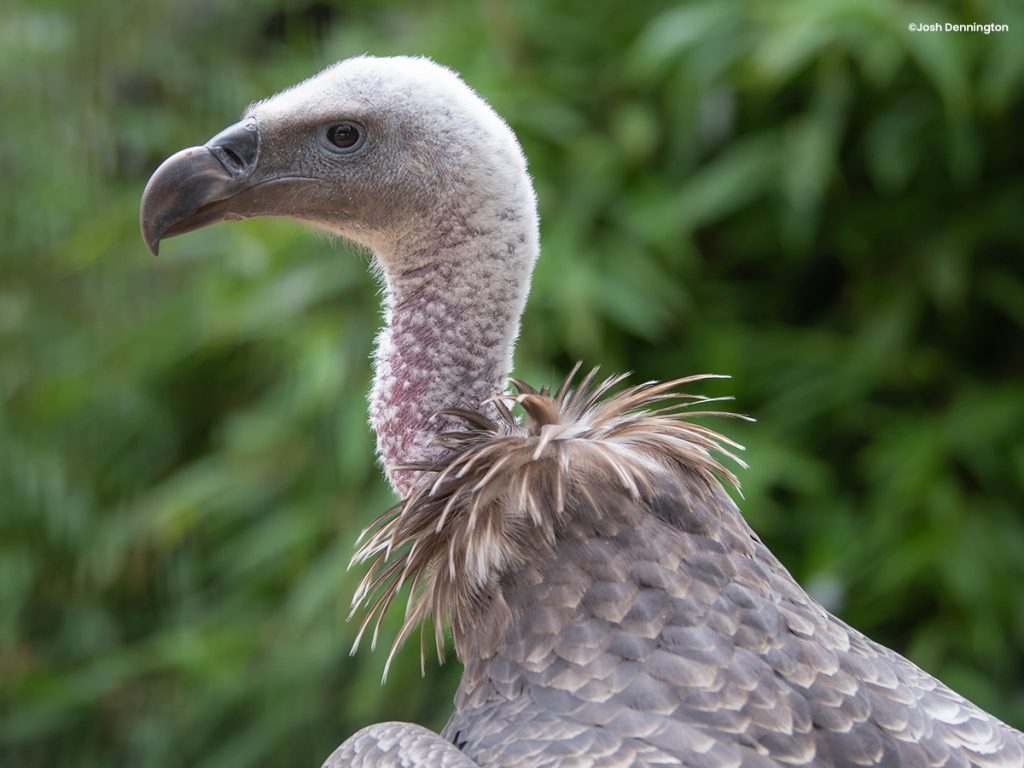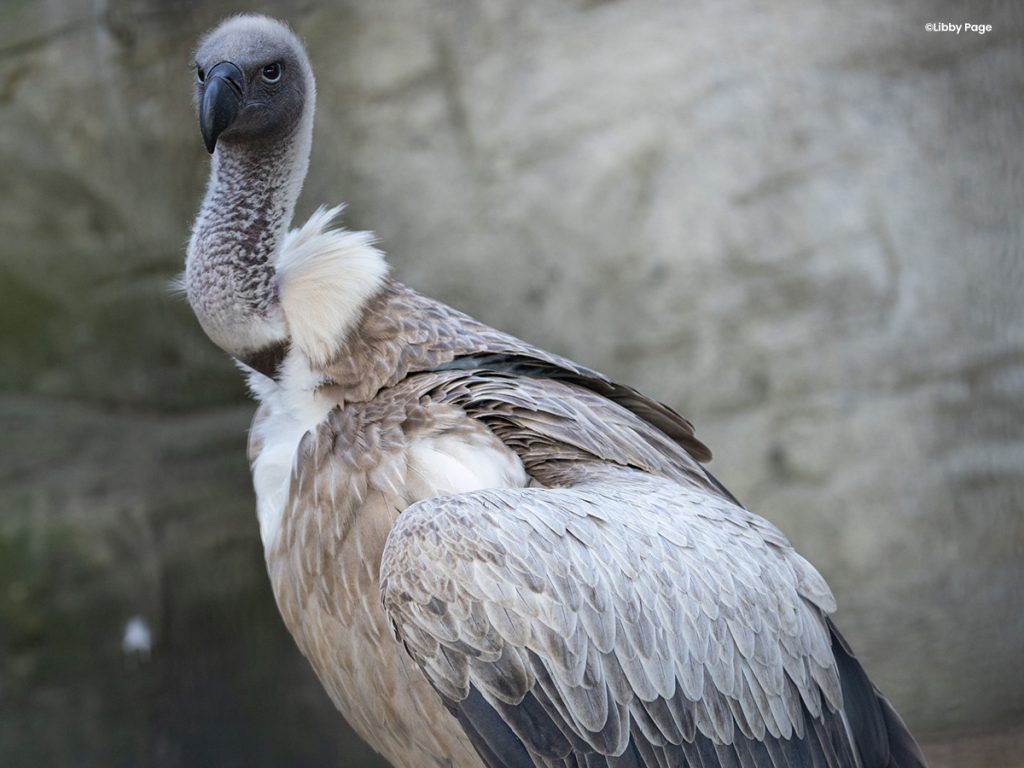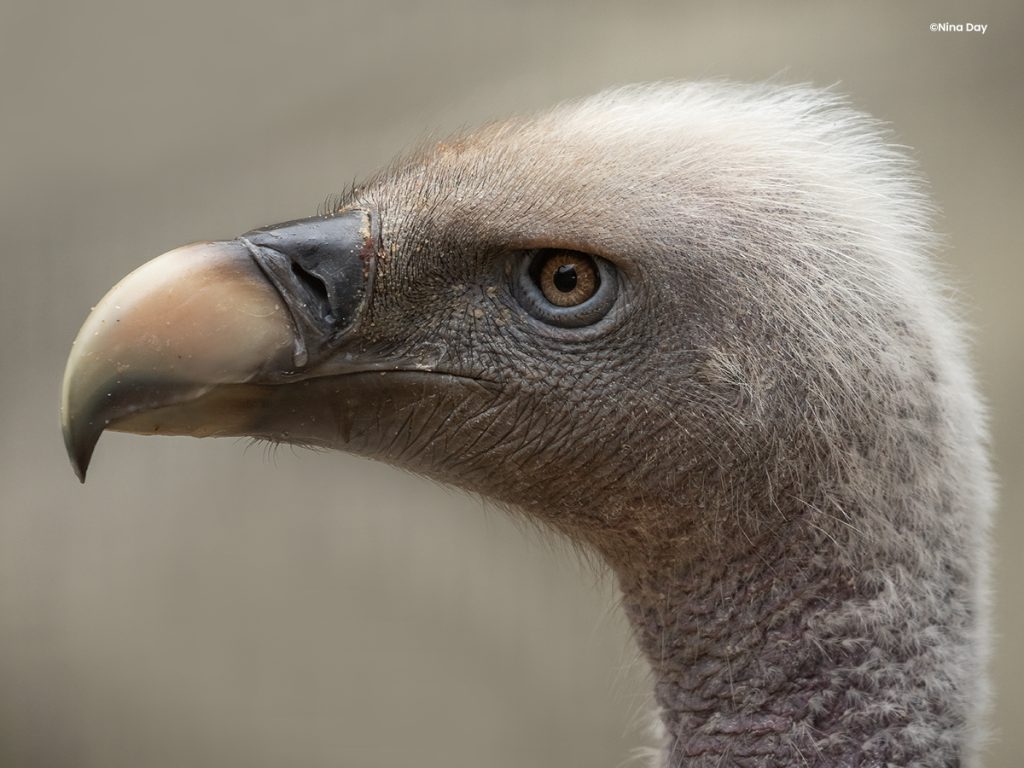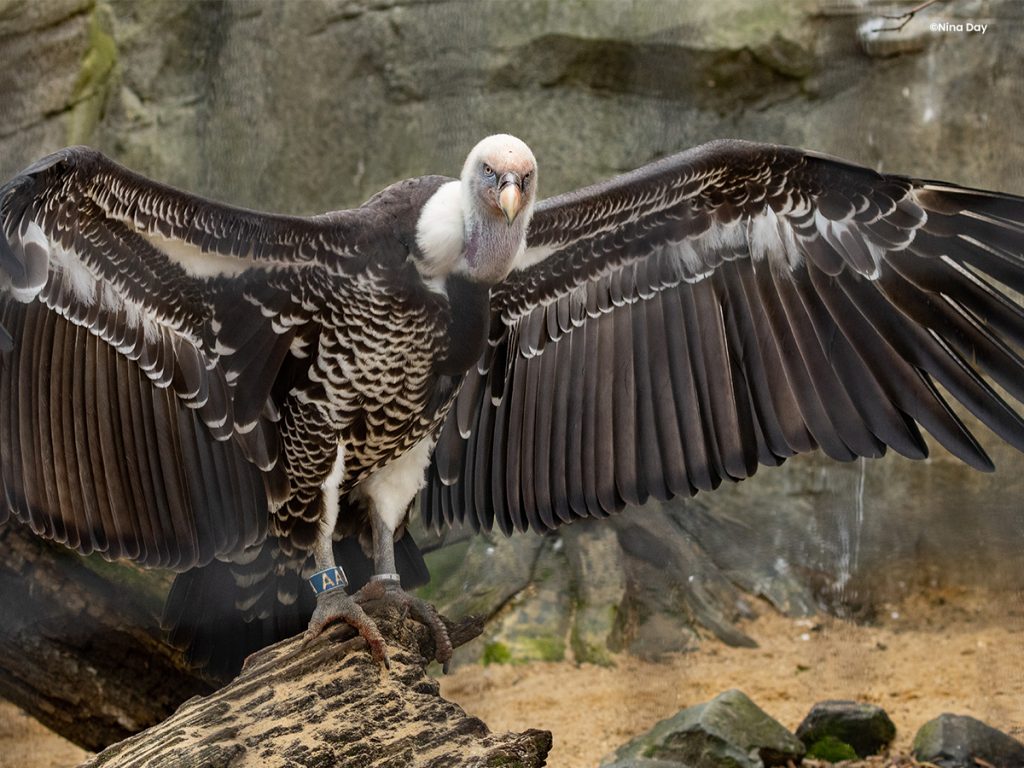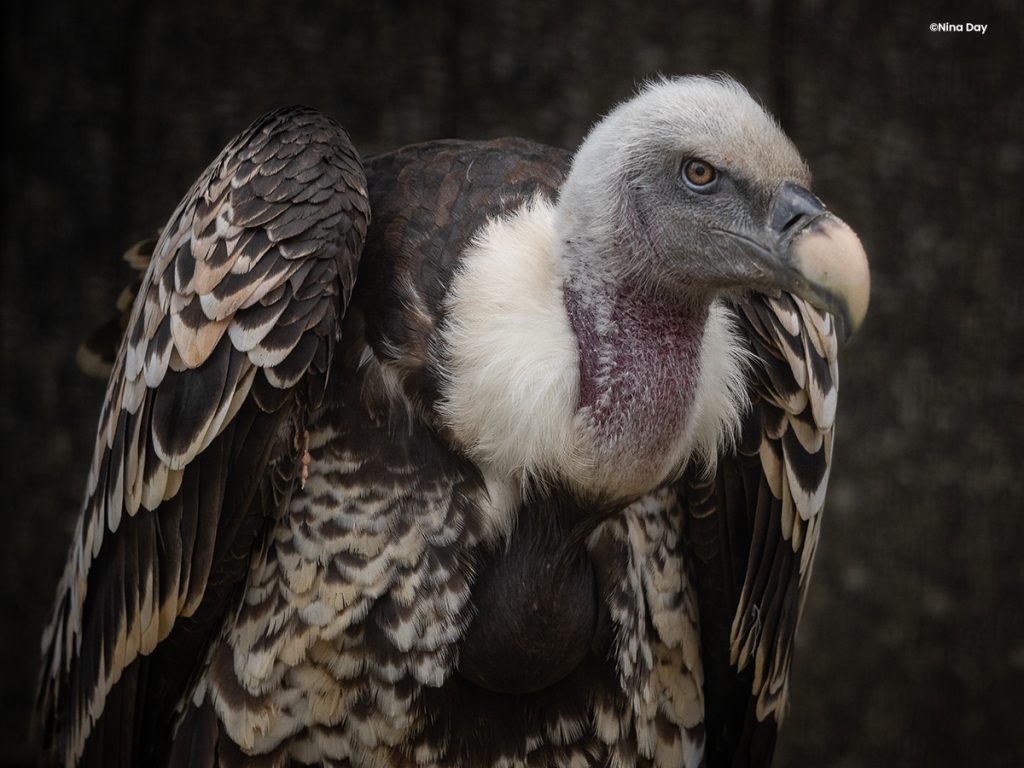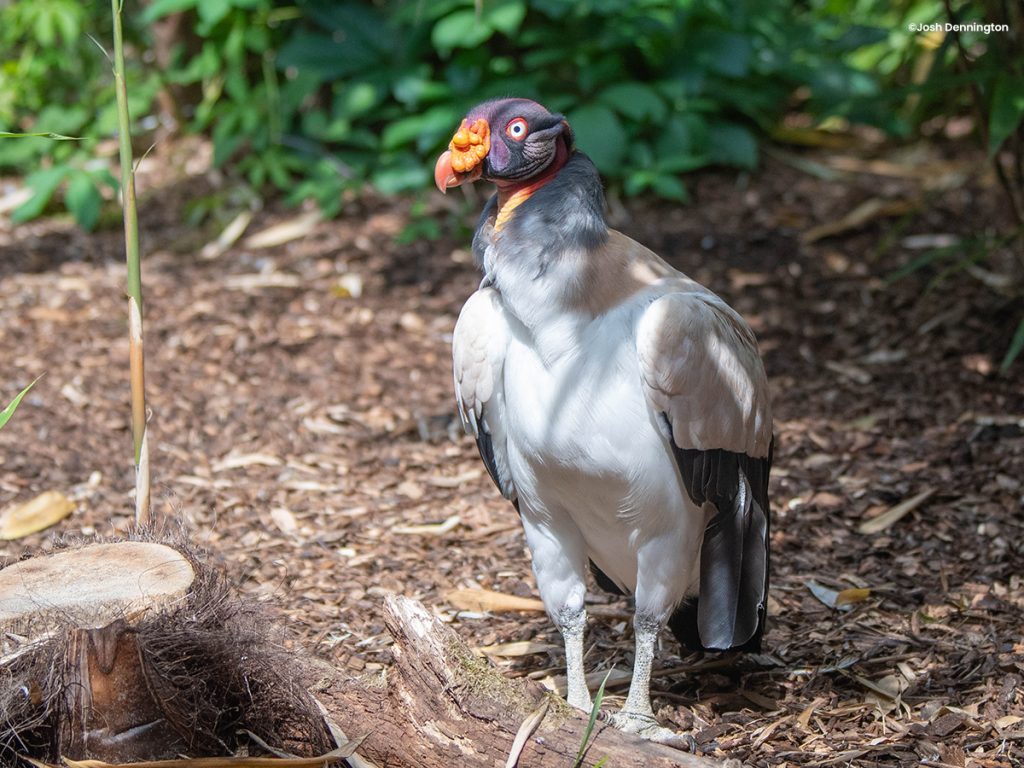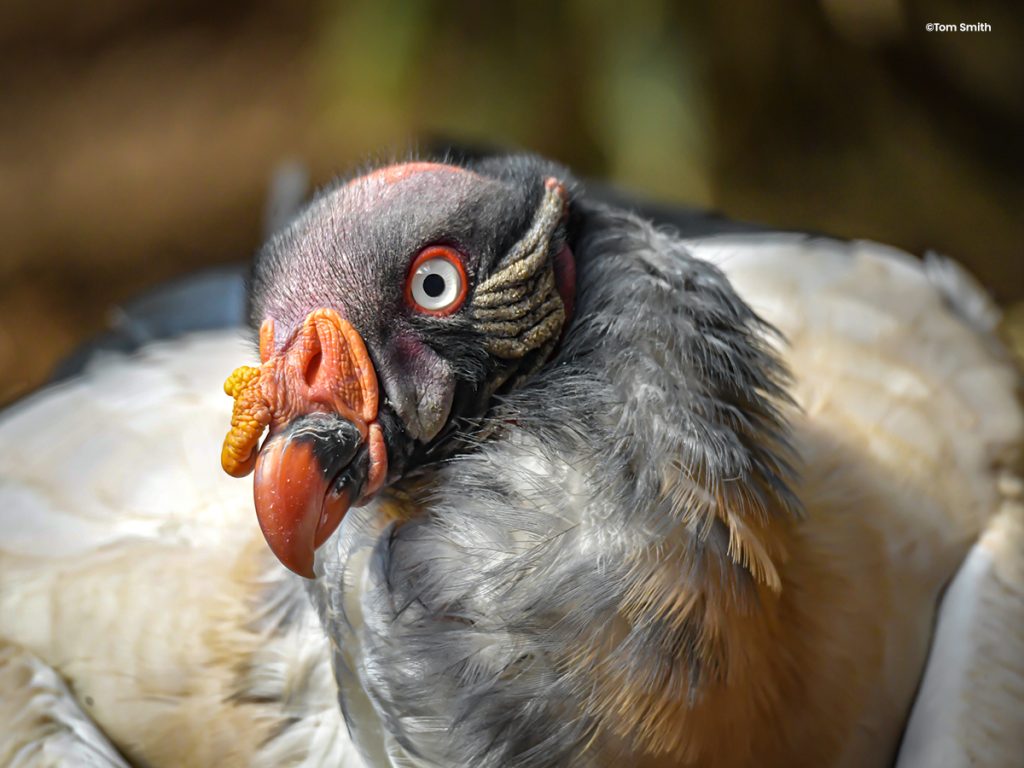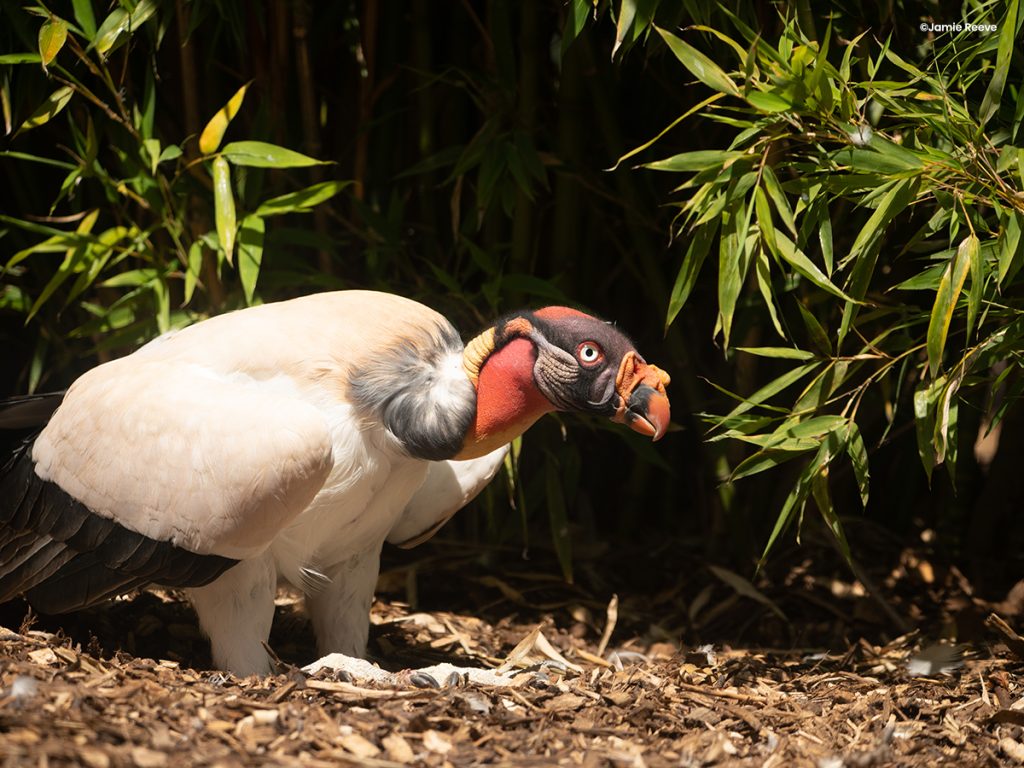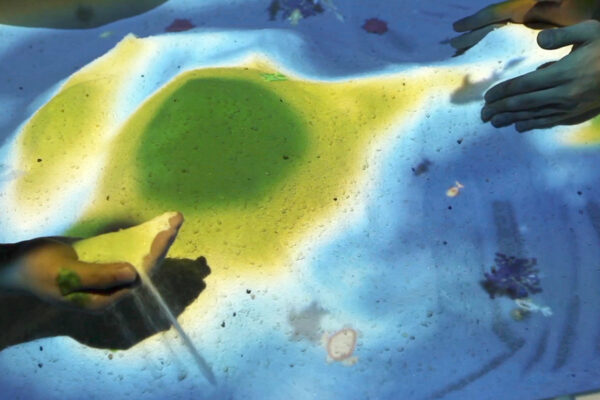Posted September 1, 2023 in Conservation
International Vulture Awareness Day 2023
International Vulture Awareness Day takes place on the first Saturday of September and was established to highlight the importance of Vulture conservation. Vultures are a vital part of the planet’s ecosystem and are currently fighting a number of threats out in the wild, with some species facing extinction.
Colchester Zoo’s charity, Action for the Wild, supports VulPro in South Africa. VulPro is a multi-faceted organisation which deals with every aspect of Vulture conservation, aiming to advance knowledge, awareness and innovation in the conservation of African Vulture populations. Activities include rescuing and rehabilitating injured and poisoned Vultures, restoring and monitoring colonies, community outreach and education and research initiatives.
Donations help towards monitoring expenses covering researcher costs to monitor breeding sites of the Critically Endangered tree nesting African White-backed Vulture. Action for the Wild has donated £25,287.92 to VulPro since 2015 and in 2023, will be making an additional contribution of £4,994,22.
Here at Colchester Zoo, we have 3 different species of Vulture: African White-backed Vulture, Ruppell’s Griffon Vulture and King Vulture.
AFRICAN WHITE-BACKED VULTURE (Gyps africanus)
Critically Endangered
Click here to find out more
African White-backed Vultures come from the Sahel region of Africa from Senegal across to Ethiopia, down to South Africa, and live in open, wooded savannah. They live for around 40 years out in the wild and pairs stay together for life.
African White-backed Vultures spend most of their time, soaring overhead, searching for carrion, using their keen eyesight. Once an individual sees a freshly killed animal, it will wheel in the sky as a signal to other Vultures to fly down and eat. Hundreds of African White-backed Vultures gather to feed. They gorge themselves so much, that they cannot fly, and then rest with their wings spread and their backs facing the sun. One hundred of these Vultures can strip a 50kg carcass in just 3 minutes!
Here at Colchester Zoo, we have two African White-backed Vultures; one 29 year old male named Bert and one 10 year old female named Betty, who can both be seen at Vulture Valley.
RUPPELL’S GRIFFON VULTURE (Gyps rueppellii)
Critically Endangered
Click here to find out more
Ruppell’s Griffon Vultures come from the Sahel region of Africa, from Senegal across to Ethiopia, and live in woodland, grassland and montane regions. They live for around 40 years out in the wild and are considered to be one of the more vocal Vulture species.
Ruppell’s Griffon Vultures can fly at 35 km/hr and travel as far as 150km from the nesting site while searching for a carcass. Their keen eyesight allows them to spot a carcass or a group of carnivores on a kill. Ruppell’s Griffon Vultures can stand up to 90cm tall with a wingspan of 2.6m. They can fly at altitudes of around 37,000 feet which is the highest recorded flight of any bird species! To put this into perspective, the average commercial airplane flies at around 30,000 – 40,000 feet.
Here at Colchester Zoo, we have seven Ruppell’s Griffon Vultures; four males named Jekyll, Gomez, Bazak and Akobi, and three females named Hyde, Morticia and Digit who can all be seen at Vulture Valley. Akobi is the offspring of Jekyll and Hyde, and Digit is the offspring of Jekyll and Morticia.
KING VULTURE (Sarcoramphus papa)
Least Concern
Click here to find out more
King Vultures live in tropical forests in Central and South America and live for around 20 years out in the wild. Like most Vultures, King Vultures have a bald head which stops them from getting dirty whilst eating.
Unlike some other Vultures, King Vultures do not have a well-developed sense of smell. They rely on other Vultures to find prey and will then descend to take part in the feeding. To keep predators away from their chicks, the adult bird keeps the nest particularly fowl smelling. King vultures mate for life and a female will lay a single egg which hatches after around 55-60 days.
Here at Colchester Zoo, we have two King Vultures; one 21 year old male named Martin and one 31 year old female named Midas, who can both be seen at World of Wings.

